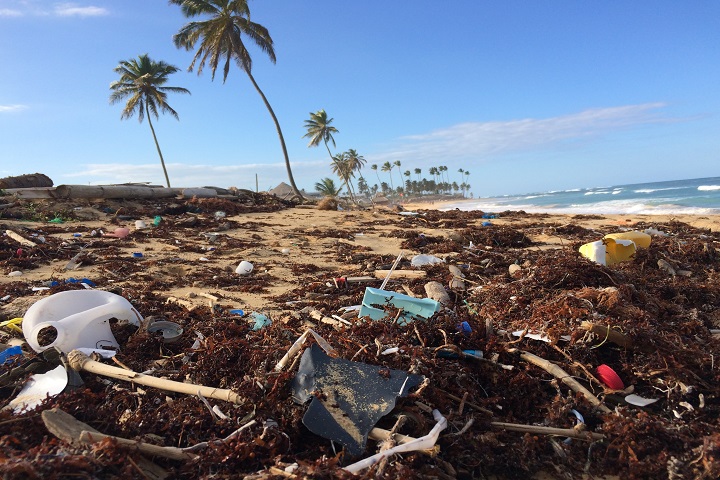Health Sciences
Japan Releasing Radioactive Wastewater into the Sea: Why It is a Bad Idea
In this article, we try to understand why releasing radioactive wastewater into the sea is a bad idea, emphasizing the far-reaching consequences it has.

Japan’s decision to release treated radioactive wastewater from the Fukushima Daiichi Nuclear Power Plant into the sea has raised significant concerns. The decision is being met with widespread opposition from various other countries as well as many Japanese nationals.
In this article, we try to understand why releasing radioactive wastewater into the sea is a bad idea, emphasizing the far-reaching consequences it has.
Table of Contents
1. Environmental Impact
As reported by the BBC, the primary concern surrounding the release of radioactive wastewater is the severe and lasting environmental damage it could inflict. Radioactive substances like tritium, strontium-90, and cesium-137 can contaminate marine ecosystems and have a detrimental impact on aquatic life. The toxic effects of these isotopes can disrupt the delicate balance of marine ecosystems, affecting fish, plankton, and other aquatic species.
Radioactive contamination can accumulate in marine organisms, leading to the spread of radiation through the entire ecosystem.
The radioactive wastewater contains not only these isotopes but also other harmful chemicals and heavy metals used in the nuclear power plant’s cooling process. These contaminants can further poison marine life and have lasting repercussions on the health of our oceans.
2. Health Risks for Humans
The release of radioactive wastewater into the sea poses a significant risk to human health. Consuming seafood contaminated with radioactive materials can lead to the accumulation of these substances in the human body, potentially causing severe health problems. High levels of radiation exposure can result in an increased risk of cancer, genetic mutations, and other health complications.
Fishermen and coastal communities that depend on the sea for their livelihood are particularly vulnerable. The release of radioactive wastewater jeopardizes their safety and well-being, as their catch and the entire seafood industry may become tainted with radioactive contaminants.
Remember the Camp Lejeune water contamination incident? According to TorHoerman Law, this contamination was caused by industrial solvents like TCE and PCE. As a result of this, many Camp Lejeune locals were found to develop cancer in the later stages of their lives.
The latest Camp Lejeune lawsuit update reveals that over a million people were impacted by the Camp Lejeune incident. The Camp Lejeune victims are currently teaming up with lawyers to seek justice and compensation for their losses.
If industrial chemicals can cause this much havoc, imagine the chaos that radioactive water, although treated, might ensue.
3. Damage to Reputation and Tourism
The Fukushima Daiichi nuclear disaster in 2011 already severely damaged the reputation of the Japanese government and the nuclear industry. Releasing radioactive wastewater into the sea risks further undermining trust in Japan’s ability to manage nuclear incidents and protect the environment.
As reported by the Los Angeles Times, China has already banned seafood imports from Japan after the Fukushima water release. Concerns over seafood safety, environmental degradation, and potential health hazards can deter tourists from visiting the region. This, in turn, will affect local economies and businesses.
Many people may choose to avoid Fukushima and surrounding areas due to these concerns, impacting tourism and the livelihoods of those dependent on it. The loss of trust and the negative image associated with this release could have lasting consequences for Japan’s reputation on the international stage.
4. International Opposition
The proposed release of radioactive wastewater into the sea has been met with strong international opposition. According to Reuters, countries like South Korea, China, and Russia have expressed concerns about the potential environmental impact on the Pacific Ocean. The international community’s reservations regarding Japan’s decision have further fueled the debate over the safety and consequences of such an action.
The Japanese government’s decision has also raised questions about the need for stricter international regulations and standards for the disposal of nuclear waste. Such disposals need greater transparency and understanding with neighboring countries.
5. Long-Term Consequences
A significant reason why releasing radioactive wastewater into the sea is a bad idea is its long-term consequences. It could impact the environment, human health, and future generations.
Radioactive contamination does not disappear overnight. It persists for extended periods, affecting ecosystems and human populations over time. Once released, it is challenging to reverse the damage caused by radioactive contamination.
Even if it’s treated, the disposal of radioactive wastewater in the sea should be considered a last resort. It is irreversible and may lead to unforeseen and uncontrollable consequences. The potential harm to future generations should not be taken lightly, and alternatives that prioritize long-term safety and sustainability must be explored.
Conclusion
The decision to release radioactive wastewater from the Fukushima Daiichi Nuclear Power Plant into the sea is a highly contentious issue. Japan’s government should’ve carefully considered the potential consequences and worked towards a more sustainable, transparent, and internationally accepted solution for managing radioactive wastewater.
However, what’s done is done, and the release of this radioactive wastewater is to continue as planned. Only time will tell if the treatment of this radioactive water actually worked and how it might impact our health, economy, and planet.
-

 Instagram4 years ago
Instagram4 years agoBuy IG likes and buy organic Instagram followers: where to buy them and how?
-

 Instagram4 years ago
Instagram4 years ago100% Genuine Instagram Followers & Likes with Guaranteed Tool
-

 Business5 years ago
Business5 years ago7 Must Have Digital Marketing Tools For Your Small Businesses
-

 Instagram4 years ago
Instagram4 years agoInstagram Followers And Likes – Online Social Media Platform















